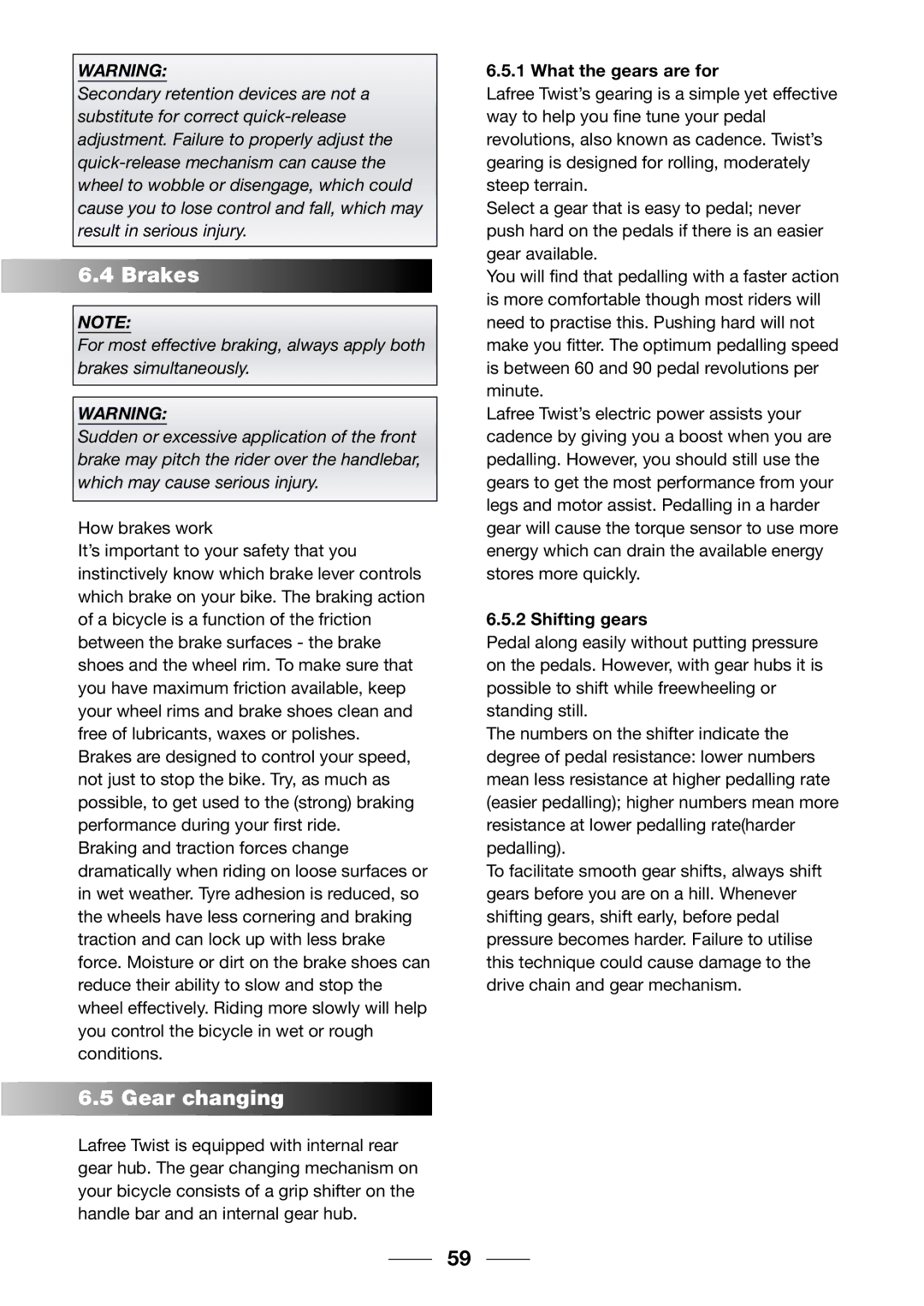
WARNING:
Secondary retention devices are not a
substitute for correct
adjustment. Failure to properly adjust the
wheel to wobble or disengage, which could
cause you to lose control and fall, which may
result in serious injury.


















 6.4
6.4

 Brakes
Brakes

























































NOTE:
For most effective braking, always apply both
brakes simultaneously.
WARNING:
Sudden or excessive application of the front
brake may pitch the rider over the handlebar,
which may cause serious injury.
How brakes work
It’s important to your safety that you instinctively know which brake lever controls which brake on your bike. The braking action of a bicycle is a function of the friction between the brake surfaces - the brake shoes and the wheel rim. To make sure that you have maximum friction available, keep your wheel rims and brake shoes clean and free of lubricants, waxes or polishes.
Brakes are designed to control your speed, not just to stop the bike. Try, as much as possible, to get used to the (strong) braking performance during your first ride.
Braking and traction forces change dramatically when riding on loose surfaces or in wet weather. Tyre adhesion is reduced, so the wheels have less cornering and braking traction and can lock up with less brake force. Moisture or dirt on the brake shoes can reduce their ability to slow and stop the wheel effectively. Riding more slowly will help you control the bicycle in wet or rough conditions.


















 6.5
6.5

 Gear
Gear


 changing
changing




































Lafree Twist is equipped with internal rear gear hub. The gear changing mechanism on your bicycle consists of a grip shifter on the handle bar and an internal gear hub.
6.5.1 What the gears are for
Lafree Twist’s gearing is a simple yet effective way to help you fine tune your pedal revolutions, also known as cadence. Twist’s gearing is designed for rolling, moderately steep terrain.
Select a gear that is easy to pedal; never push hard on the pedals if there is an easier gear available.
You will find that pedalling with a faster action is more comfortable though most riders will need to practise this. Pushing hard will not make you fitter. The optimum pedalling speed is between 60 and 90 pedal revolutions per minute.
Lafree Twist’s electric power assists your cadence by giving you a boost when you are pedalling. However, you should still use the gears to get the most performance from your legs and motor assist. Pedalling in a harder gear will cause the torque sensor to use more energy which can drain the available energy stores more quickly.
6.5.2 Shifting gears
Pedal along easily without putting pressure on the pedals. However, with gear hubs it is possible to shift while freewheeling or standing still.
The numbers on the shifter indicate the degree of pedal resistance: lower numbers mean less resistance at higher pedalling rate (easier pedalling); higher numbers mean more resistance at lower pedalling rate(harder pedalling).
To facilitate smooth gear shifts, always shift gears before you are on a hill. Whenever shifting gears, shift early, before pedal pressure becomes harder. Failure to utilise this technique could cause damage to the drive chain and gear mechanism.
59
